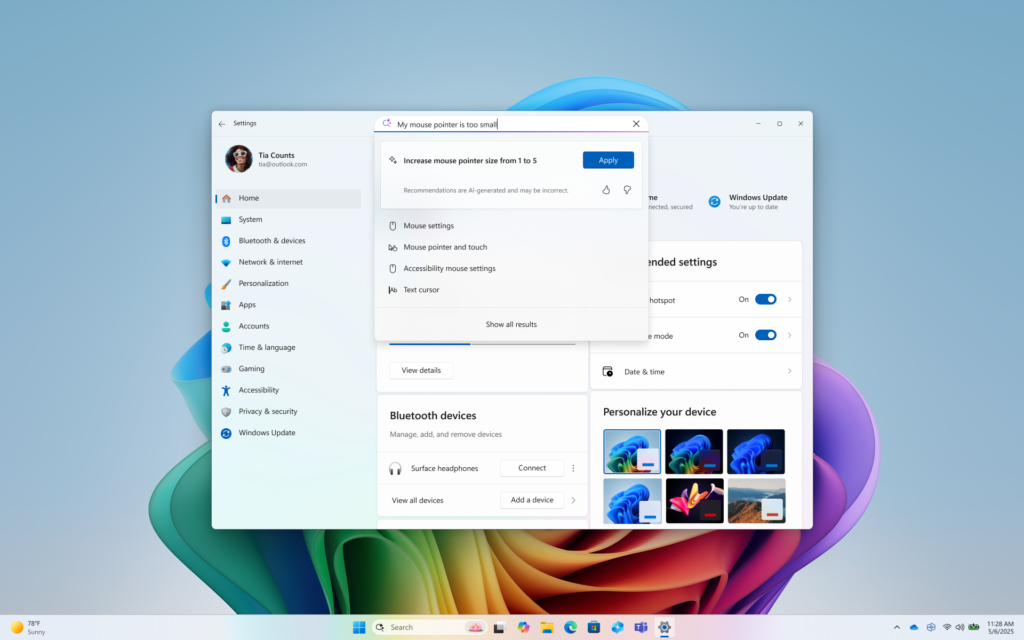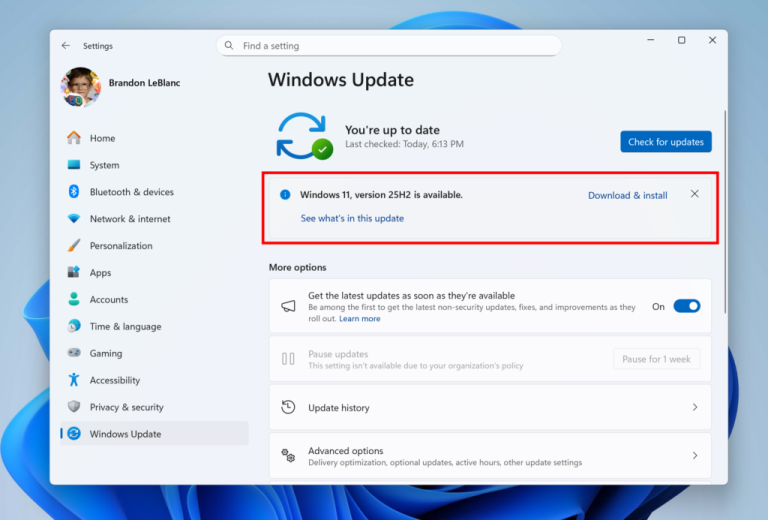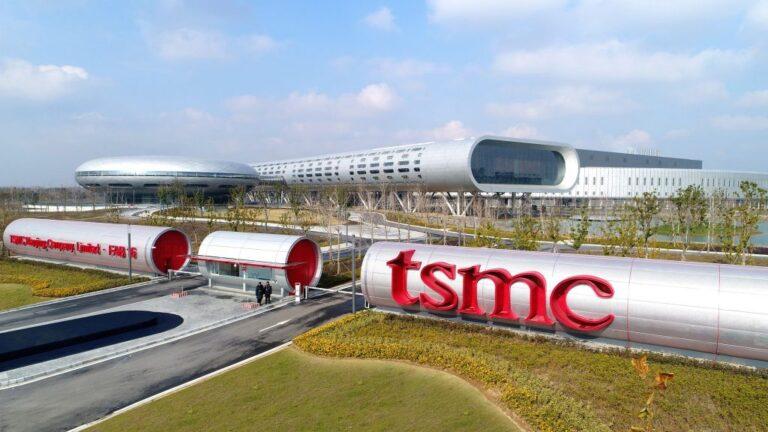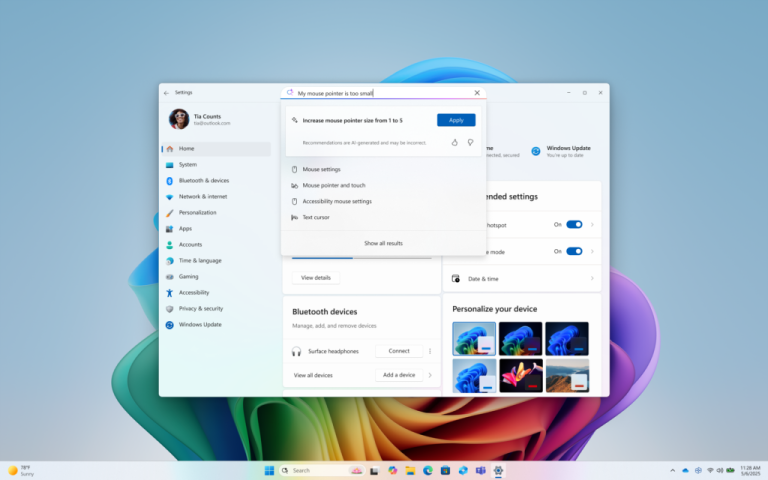
Microsoft has released the preliminary cumulative update KB5064081 for Windows 11 version 24H2, introducing thirty-six new features and changes, some of which are being rolled out gradually. This package is part of the optional monthly preview updates, published at the end of each month to test new features intended for the following Patch Tuesday. Unlike mandatory Tuesday updates, it contains no security fixes and is installed only at the user’s discretion.
KB5064081 can be installed through Settings → Windows Update → Check for updates. If the option Get the latest updates as soon as they’re available is disabled, the system will prompt with Download and install. The package is also available for manual download via the Microsoft Update Catalog. After installation, the build number advances to 26100.5074.
One of the most significant changes is the reworked method of displaying CPU load in Task Manager. Previously, the Processes tab showed the Processor Utility metric, often leading to distorted values. For example, the load of a single core on a 16-core processor was displayed as 100%, and overclocking beyond the base frequency could push the indicator above 100% before it was truncated. As a result, figures varied across tabs and third-party utilities. Now, a unified formula is used, consistent with the Performance and Users sections: (Δ Process CPU Time) ÷ (Δ Elapsed Time × Logical Processors). For those accustomed to the old view, a new CPU Utility column has been added under Details.
The list of innovations in KB5064081 is extensive. Recall has gained a personalized home page with recent snapshots, frequently used apps, and websites, along with filters for managing which resources enter the collection. Click to Do now includes an interactive tutorial that demonstrates, with text and images, how to accomplish tasks such as background cropping or résumé creation.
Dialog boxes requesting access to the microphone, camera, or location have been redesigned: the screen now subtly darkens and the prompt appears centered. The taskbar once again features an enlarged digital clock with seconds, available under Settings → Time & Language. Search has received a new grid mode for images and now provides indexing status notifications, including whether files are stored in the cloud or locally. The lock screen now supports widgets—weather, sports, traffic, and more—with options to resize and reorder them.
File Explorer now displays separators in the context menu and shows colleague avatars in the activity column and recommendation pane for corporate accounts. Hovering over them reveals a Microsoft 365 Live Persona Card with details about the colleague and their relationship to the file.
Windows Hello has been redesigned with a modern interface for logins and passkey operations, spanning scenarios from the sign-in screen to Microsoft Store and Recall. Facial recognition has been improved, and fingerprint sign-in after sleep has become more reliable.
Settings now include new notifications about system activation, as well as oversight of which third-party applications access integrated generative AI models. On Copilot+ PCs, a new assistant simplifies parameter searches, now supporting Intel and AMD platforms in addition to Snapdragon (currently limited to the English interface).
The Widgets section now allows multiple panels, navigable from the left menu. The Discover feed has been redesigned and now includes Copilot-curated collections with articles, videos, and illustrations from MSN.
For enterprises, Windows Backup for Organizations has been introduced, streamlining data migration and recovery during device upgrades. Meanwhile, the long-deprecated PowerShell 2.0, unsupported since 2017, has been permanently removed.
Among the fixes: resolved issues with file property unblock, crashes in textinputframework.dll, explorer.exe failures due to dbgcore.dll, IME errors when entering Chinese and Japanese text, ReFS handling of large files and temporary storage conflicts, Miracast audio dropouts, audio service stability, Kerberos failures when accessing cloud shares, ARM64 application installation speeds, and login screen freezes at “Just a moment”.
Known issues include erroneous CertEnroll warnings when working with certificates (a fix is already rolling out and will reach all users within four weeks), as well as audio and video lag when streaming via NDI.
In sum, KB5064081 stands out as one of the most feature-rich preview updates in recent memory—blending cosmetic interface refinements, bug fixes, and substantial enhancements to tools like Recall, Task Manager, File Explorer, and Windows Hello, while also strengthening enterprise capabilities.






